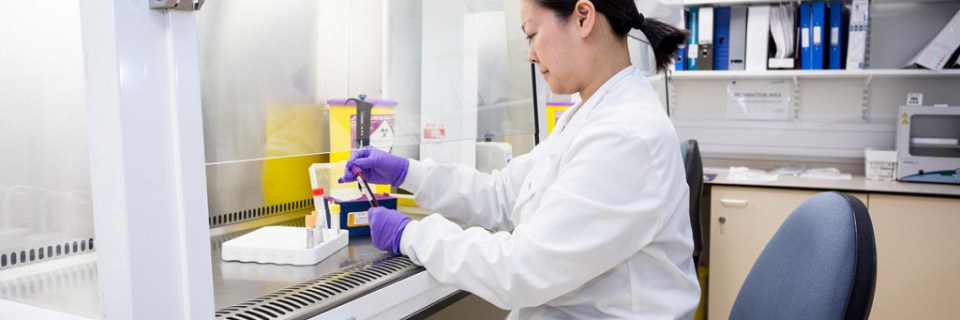The NIHR BioResource is a panel of over a 100,000 volunteers across England, both with and without health conditions, who have agreed to be contacted for research studies.
It aims to investigate the links between their genes, the environment, health and disease, by building a national database of volunteers’ DNA and other information, such as their lifestyle or family history. Health researchers can quickly call upon this database to help their research, or contact volunteers to see if they’d like to participate in new studies or experimental medicines.
The NIHR Manchester BioResource Centre is one of thirteen BioResource Centres across England. Each one coordinates the recruitment of volunteers in their local area, and is supported by the NIHR Biomedical Resource Centres (BRC) and Clinical Research Facilities (CRF).
How does the BioResource Work?
Volunteers could be asked to join the BioResource by a health professional whilst in their GP surgery, attending a hospital appointment, if they have previously participated in research, or they could even get in touch themselves.
Once someone volunteers for the BioResource, they give a DNA sample (usually a small amount of blood and saliva) at a local clinic or surgery, along with information about their health and lifestyle.
Their DNA samples are sent away for storage, whilst their unique DNA code and other information is added to national database. Samples are given a unique barcode and kept separately from their personal information, such as name, address and date of birth. All information is held securely and protected by national governance and ethics policies.
Researchers working in the NHS, universities or industry can then contact the BioResource to request samples for their work. If researchers need people with a specific genetic make-up (genotype) or physical characteristics (phenotype), the BioResource can quickly identify these from the database and contact them to see if they would like to participate.
About the NIHR Manchester BioResource Centre:
The Manchester NIHR BioResource Centre is hosted by Manchester University NHS Foundation Trust (MFT) and sits within the wider NIHR infrastructure in Manchester, including the NIHR Manchester Biomedical Research Centre (BRC) and Clinical Research Facility (CRF).
The Centre is led by Professor Gareth Evans, Consultant in Medical Genetics and Cancer Epidemiology at Manchester University NHS Foundation Trust and The Christie NHS Foundation Trust, and Professor of Medical Genetics and Cancer Epidemiology at The University of Manchester.
Professor Evans has an international reputation in clinical and research aspects of genetics, particularly in neurofibromatosis and breast cancer.
Manchester leads on three rare diseases. These are:
- Neurofibromatosis Type 1 (NF1) – a genetic condition that causes tiny, non-cancerous tumours to develop along nerve cells
- Neurofibromatosis Type 2 (NF2) – a similar genetic condition to NF1, but with different symptoms
- Congenital Hyperinsinulism (CHI) – a condition caused by defective insulin-creating cells in the pancreas, often causing severe low blood sugar (hypoglycaemia).
Manchester also recruits patients for some of the other 40 rare diseases which make up the NIHR BioResource, as well as the Inflammatory Bowel Disease (IBD) BioResource.
Find out more or get involved in the BioResource:
Clinicians & Healthcare Professionals
If you are a clinician at MFT, Salford Royal NHS Foundation Trust (SRFT) or The Christie and would like to start recruiting patients, please contact:
Laura Crowther
Clinical Trials Manager
Manchester Centre for Genomic Medicine
0161 701 9137
Laura.crowther@mft.nhs.uk
Patients
If you are a patient with a rare or common disease or condition and would like to volunteer, please discuss this with your consultant.
Healthy Volunteers
If you don’t have an existing health condition and would like to volunteer for the BioResource, please contact nbr@bioresource.nihr.ac.uk, or phone 0800 090 22 33.
Further information about the BioResource is also available on the national NIHR BioResource website:




